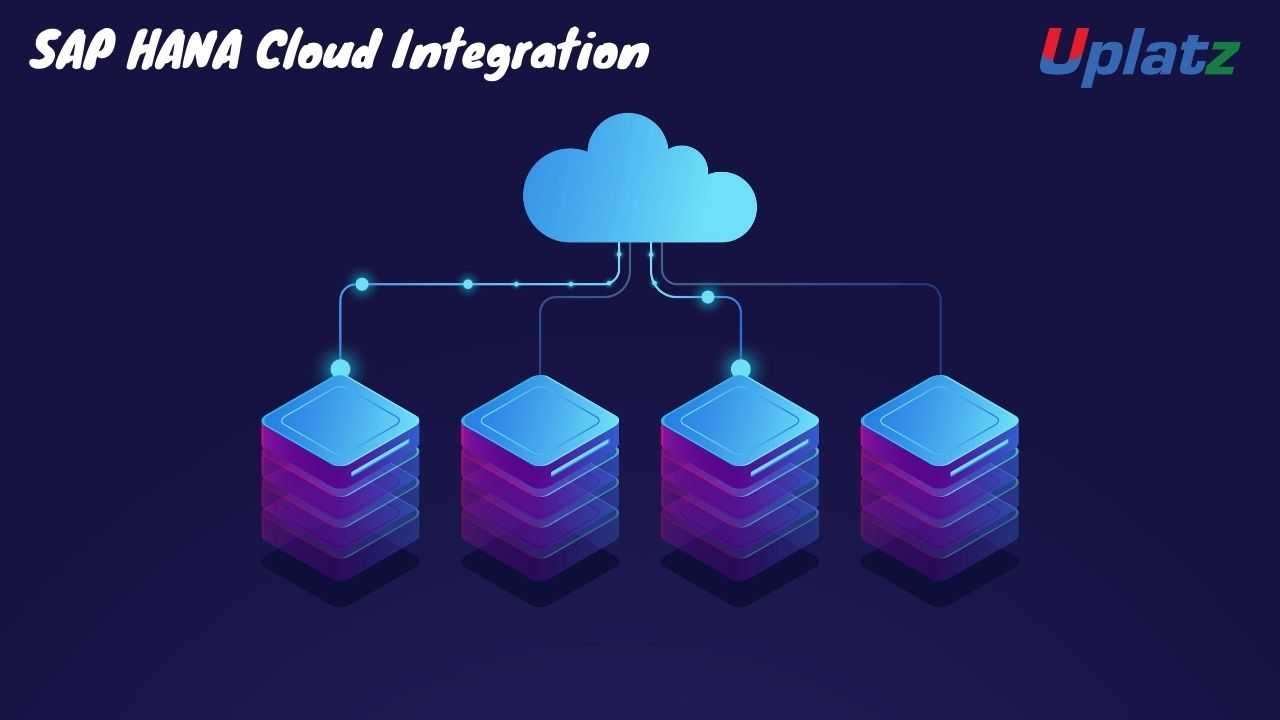Integration of SAP FICO with HR, MM, SD
Learn end-to-end SAP integration between FICO, HR, MM, and SD modules—essential for functional consultants and implementation roles.Preview Integration of SAP FICO with HR, MM, SD course
View Course Curriculum Price Match Guarantee Full Lifetime Access Access on any Device Technical Support Secure Checkout Course Completion Certificate 95% Started a new career
BUY THIS COURSE (
95% Started a new career
BUY THIS COURSE (GBP 12 GBP 29 )-
 89% Got a pay increase and promotion
89% Got a pay increase and promotion
Students also bought -
-

- SAP Accounts Receivable (basic to advanced)
- 5 Hours
- GBP 12
- 99 Learners
-

- SAP CRM (Customer Relationship Management)
- 25 Hours
- GBP 12
- 152 Learners
-

- SAP HCI (HANA Cloud Integration)
- 15 Hours
- GBP 29
- 54 Learners

Integration of SAP FICO with HR, MM, and SD – Online Course
Integration of SAP FICO with HR, MM, and SD is an in-depth, self-paced course tailored for SAP consultants, functional analysts, integration specialists, and project managers who seek to master the complex interplay between financial operations and other key functional areas within the SAP ERP ecosystem. In today’s enterprise landscape, efficient data flow and system harmony are crucial for delivering business value. This course is specifically designed to bridge the knowledge gap between siloed module expertise and cross-functional integration competence.
SAP is an integrated enterprise resource planning (ERP) platform where various modules such as FICO (Financial Accounting and Controlling), HCM (Human Capital Management), MM (Materials Management), and SD (Sales and Distribution) are interlinked to support seamless business processes. However, integration between these modules is not always intuitive and often requires detailed configuration knowledge, business process alignment, and troubleshooting skills. This course delivers all of that and more, offering real-world integration use cases and practical insights essential for successful SAP implementations and operations.
You will explore how financial transactions initiated in HR, MM, and SD impact financial ledgers, cost centers, and controlling reports. From payroll postings in HR to inventory valuation in MM and revenue recognition in SD, each module affects financial accounting differently. Through this course, you will learn how to configure these interactions, monitor data consistency, and resolve errors that commonly arise in integrated SAP systems.
Whether you are new to SAP integration or a seasoned consultant looking to sharpen your cross-module understanding, this course provides the conceptual clarity and hands-on knowledge needed to operate confidently in complex enterprise environments. You will gain deep insight into how various departments communicate through SAP, enabling smoother cross-functional collaboration and streamlined operations.
The course is also highly relevant for project leads and managers overseeing SAP rollouts or upgrades. Understanding module integration is crucial for making informed decisions about process design, resource allocation, and system testing. By the end of this course, you'll be better equipped to contribute to projects that require cohesive financial and operational alignment.
How to Use This Course
To maximize the value of the Integration of SAP FICO with HR, MM, and SD course, follow a methodical approach that supports both learning and practical application:
- Begin with a Mindset of Integration
Before diving into configurations, understand the ‘why’ of integration. Approach each section with a focus on how modules interconnect rather than just how they function individually. Keep in mind that the goal is to ensure smooth data flow across financial, human resource, procurement, and sales processes. - Follow the Recommended Learning Sequence
The course is structured in a logical sequence, starting with foundational concepts before progressing to detailed configurations and real-time scenarios. Follow this path as designed to avoid confusion, especially if you’re unfamiliar with specific module terminology or settings. - Pay Close Attention to Real-World Use Cases
Throughout the course, practical examples and real-time business processes are included to help bridge theory with practice. These examples replicate the day-to-day challenges faced in an SAP-integrated environment and should be studied carefully. Try to map these cases to scenarios in your own organization or hypothetical businesses to strengthen your comprehension. - Engage with the Configuration Exercises
As you learn about different integration points—such as linking wage types to GL accounts or synchronizing goods receipt with accounting documents—get hands-on with the exercises. If you have access to an SAP sandbox environment, practice the configurations in real time. This tactile experience is crucial for reinforcing your skills. - Document Key Learnings and Integration Flows
Create a personal integration guide or map that illustrates how data flows between SAP modules. Include steps, transaction codes, and configurations. This reference will be a valuable asset when working on live SAP systems or preparing for certification exams. - Focus on Troubleshooting Techniques
A significant part of SAP integration involves identifying and resolving errors. The course provides tips and methods to trace integration issues, analyze error messages, and fix configuration mismatches. Take note of these strategies as they will prove essential in real-world SAP environments. - Review Each Module’s Impact on FICO
Make sure to clearly understand how HR postings (such as payroll), MM transactions (like goods movement), and SD activities (such as invoice generation) impact the FICO module. This insight is what distinguishes an integration expert from a standard module consultant. - Complete Practical Assessments and Scenarios
Some sections of the course contain scenario-based assignments or exercises. These are not optional—they are essential for testing your understanding of cross-module processes. Completing them will not only validate your skills but also boost your confidence in applying them. - Participate in Community Discussions (if available)
If the course offers a community forum or discussion board, make sure to participate. Engaging with peers can expose you to different business perspectives, configuration strategies, and common challenges faced by others in the field. - Revisit Modules as Needed
SAP integration can be complex, and it’s perfectly normal to revisit topics for clarification. The self-paced nature of this course gives you the flexibility to rewatch videos, redo exercises, and revise notes until concepts are clear and firmly grasped.
By the end of the Integration of SAP FICO with HR, MM, and SD course, you will have built a solid foundation in understanding and configuring inter-module processes. You will be able to support or lead SAP integration tasks, ensure accurate data flow between departments, and contribute to smoother SAP project implementations.
This course isn’t just about learning how SAP modules work—it’s about understanding how they work together to support enterprise-wide operations. Armed with this knowledge, you’ll be well-positioned to take on roles that demand holistic ERP expertise and drive cross-functional success in your organization.
Course/Topic 1 - Course access through Google Drive
-
Google Drive
-
Google Drive
By completing this course, learners will:
- Understand integration touchpoints between SAP FICO and HR, MM, and SD modules.
- Configure and troubleshoot cross-module transactions and master data flows.
- Learn account determination processes in MM and SD that affect FICO.
- Implement wage type mapping and payroll posting integration with FICO in HCM.
- Gain expertise in goods movement postings and invoice verification in MM and their financial implications.
- Explore revenue recognition, billing, and receivables integration with SD.
- Enhance skills in cross-functional design, testing, and documentation for SAP implementations.
- Integration of SAP FI with SAP HCM Module – Part 1
(Wage type mapping, payroll posting configuration, and employee cost assignments) - Integration of SAP FI with SAP HCM Module – Part 2
(HR master data relevance in financial postings, error handling and reconciliations) - Integration of SAP FI with SAP MM Module – Part 1
(GR/IR account configuration, automatic account determination, and goods receipt entries) - Integration of SAP FI with SAP MM Module – Part 2
(Invoice verification, tax calculations, and vendor accounting impact) - Integration of SAP FI with SAP SD Module
(Revenue postings, billing integration, credit management, and receivables processes)
Upon completing the Integration of SAP FICO with HR, MM, SD course, learners will receive a Course Completion Certificate from Uplatz, validating their understanding and practical application of inter-module integration in SAP.
This certification is a valuable credential for SAP consultants, implementation leads, and cross-functional team members involved in business process design and SAP system architecture.
Beyond the foundational certificate, this course prepares professionals for advanced SAP roles or official SAP certifications where integration knowledge is critical—for example, SAP Certified Application Associate - Financial Accounting with SAP ERP, or SAP S/4HANA Integration certifications.
Mastering SAP module integration is critical for professionals working in large-scale ERP environments. This course empowers learners to handle real-time business scenarios involving finance, procurement, HR, and sales—making them indispensable to SAP projects.
Career Opportunities After This Course
- SAP FICO Consultant (with Integration Expertise)
- SAP Functional Consultant (MM, SD, HR)
- SAP Implementation Lead
- SAP Business Process Analyst
- SAP System Integration Consultant
- SAP S/4HANA Solution Architect
- SAP Testing/Support Analyst (Cross-functional)
Industries Hiring SAP Integration Experts
- Manufacturing & Logistics
- Banking & Financial Services
- Healthcare & Pharmaceuticals
- Energy & Utilities
- Retail & E-commerce
- IT Services & SAP Consulting Firms
- Public Sector & Government Projects
1. How does SAP FICO integrate with the HCM module?Integration is done mainly through payroll posting configurations, where wage types are mapped to GL accounts and posted during payroll runs.
2. What is the role of automatic account determination in MM-FI integration?
It ensures that inventory movements and purchase transactions automatically post to the correct GL accounts based on valuation class and transaction type.
3. Explain the FI-MM integration touchpoint during invoice verification.
During invoice posting in MM, the system updates GR/IR clearing accounts and posts to vendor liabilities in FI.
4. How does revenue flow from SD to FI?
Sales orders, delivery, and billing in SD trigger FI documents that reflect revenue recognition, tax postings, and customer receivables.
5. What are common errors in inter-module integration?
Examples include missing account assignments, incorrect master data configurations, or inconsistencies in transaction postings that prevent automatic GL entries.
6. What configuration is needed for payroll to post to FI?
Define symbolic accounts, assign them to wage types, link to GL accounts, and run payroll posting (PC00_M99_CIPE).
7. How is the credit management process linked to FI in SD?
SD checks customer credit limits maintained in FI before allowing order processing, using credit control areas and risk categories.
8. How do you handle cost center postings in integration scenarios?
Cost centers from HCM or MM are mapped during posting to ensure accurate allocation of employee or material costs to controlling elements in FI.
9. What reports can help troubleshoot integration issues?
Transaction codes like FBL1N, FBL3N, MB5S, and PC00_M99_CIPE help track and verify cross-module postings.
10. How does integration improve SAP implementation quality?
It ensures end-to-end consistency, reduces manual data handling, automates financial impact of operations, and aligns cross-departmental processes.









